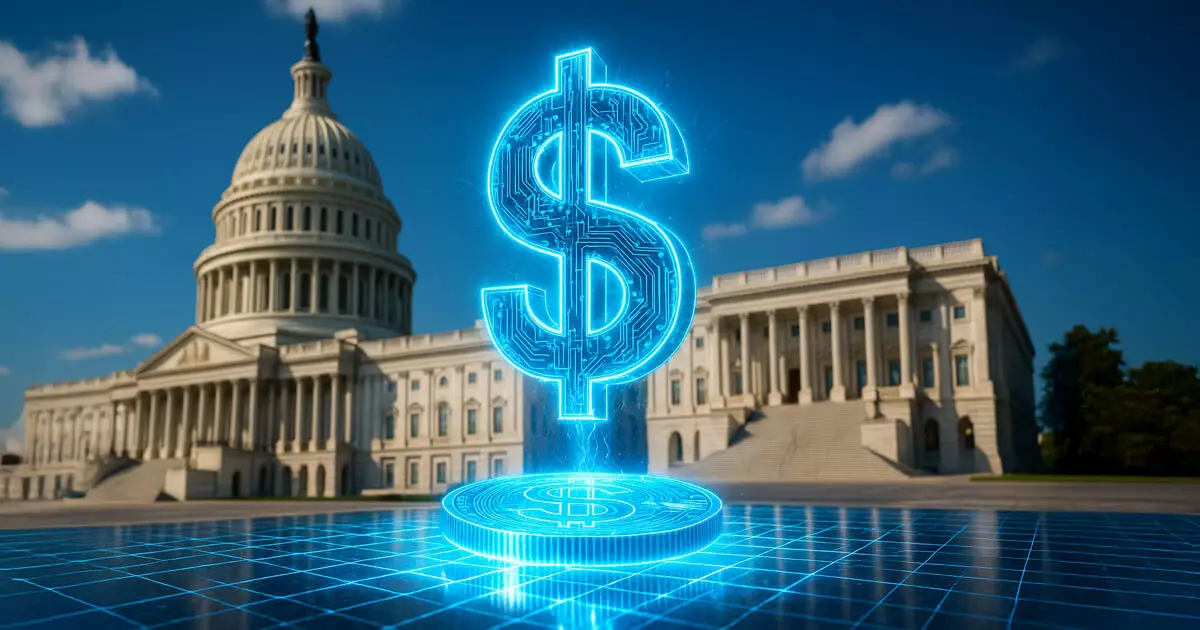In a political climate where financial innovation often clashes with regulatory oversight, the introduction of the Guiding and Establishing National Innovation for U.S. Stablecoins (GENIUS) Act marks a significant shift in the Senate’s approach to digital currency. With stablecoin capitalization exceeding $241 billion and an increasing number of individual and institutional investors flocking to these asset-backed tokens, direct intervention is necessary. Led by Republican Senators including Bill Hagerty and Cynthia Lummis, the GENIUS Act aims for comprehensive regulations that want to keep the United States as a leader in the rapidly evolving digital economy.
However, it’s essential to critically analyze what passing this legislation might mean for the future of U.S. monetary policy and the dynamics within Washington. Is it truly an opportunity for innovation, or does it herald the onset of watered-down regulations that could expose the financial system to unprecedented risks?
Bipartisan Support and Political Alliances
The passage of the GENIUS Act through the Senate Banking Committee with an 18-6 bipartisan vote is telling. It reflects a rare moment of unity in a polarized political landscape. But why is this happening now? With large entities like Tether and Circle holding significant market share, the stakes are higher than ever for lawmakers to craft a constructive framework that can engender trust and clarity around digital assets. The backing of Senators from across the aisle could be a strategical maneuver to solidify a regulatory landscape that aligns with global counterparts.
Furthermore, leaders like Senator Hagerty have voiced their commitment to maintaining dollar dominance in the international arena. Such sentiment underscores an age-old debate in American politics: the need to balance control and freedom. While safeguarding the dollar’s primacy is a noble aim, is it enough to justify the potential encroachment on both individual freedoms and the roles of small financial institutions?
The Risks of Centralization
Opposition to the GENIUS Act has rapidly crystallized, with some Democrats and banking coalitions raising alarms about the implications of allowing big-tech firms to dominate the stablecoin landscape. The fear is that allowing conglomerates to issue their own stablecoins dilutes the community banking sector and concentrates financial power in the hands of a few. Growth should not come at the cost of access; a financial system that marginalizes small players may quickly erode consumer trust.
Senator Elizabeth Warren has emerged as a prominent critic, emphasizing that without stringent controls, the legislation could facilitate a perverse incentive structure where innovation displaces good banking practices. When traditional deposits risk being overshadowed by unregulated digital assets, the systemic vulnerabilities become alarming, begging the question of whether national interest is being adequately served.
Potential for Division in the Democratic Party
Despite controlling both houses of Congress, the Democratic Party finds itself in a quagmire regarding its stance on stablecoin legislation. Names like Kirsten Gillibrand and Mark Warner have previously exhibited openness to digital asset regulations. Their participation in determining the future of the GENIUS Act will be crucial, as they attempt to navigate a path reflective of their constituents’ interests. However, with the divide between progressives and moderates widening, consensus is far from guaranteed.
At this intersection, the necessity of fostering innovation without losing consumer safeguards is imperative. Partisan imbalances can stymie progress, and as of now, broad support isn’t a certainty. Each vote will count as both sides gauge the implications of a rapidly changing monetary landscape.
Economic Significance and the Global Context
The GENIUS Act is not merely legislation; it symbolizes an urgent call for Americans to understand the broader implications of stablecoin adoption. With the growing trend toward digital assets, offering a framework that aligns with existing monetary policy could liberate a market stifled by uncertainty and open avenues for further innovation. The potential for foreign competitors to overshadow U.S.-based innovations drives home the urgency for clear regulations.
In a world where financial ecosystems constantly evolve, it’s not enough merely to legislate; the bill must account for global realities. The growing demand for stability linked to dollar-backed assets can reinforce U.S. economic standing but may also carry unintended consequences for existing financial institutions.
The impending vote on the GENIUS stablecoin bill will be a defining moment, not merely for the Senate or the Republican Party but for the U.S. economy at large. As financial products evolve, will lawmakers uphold their duty to protect consumers while facilitating economic innovation? The answer may shape America’s role on the global digital stage and define the future of money itself.


Leave a Reply